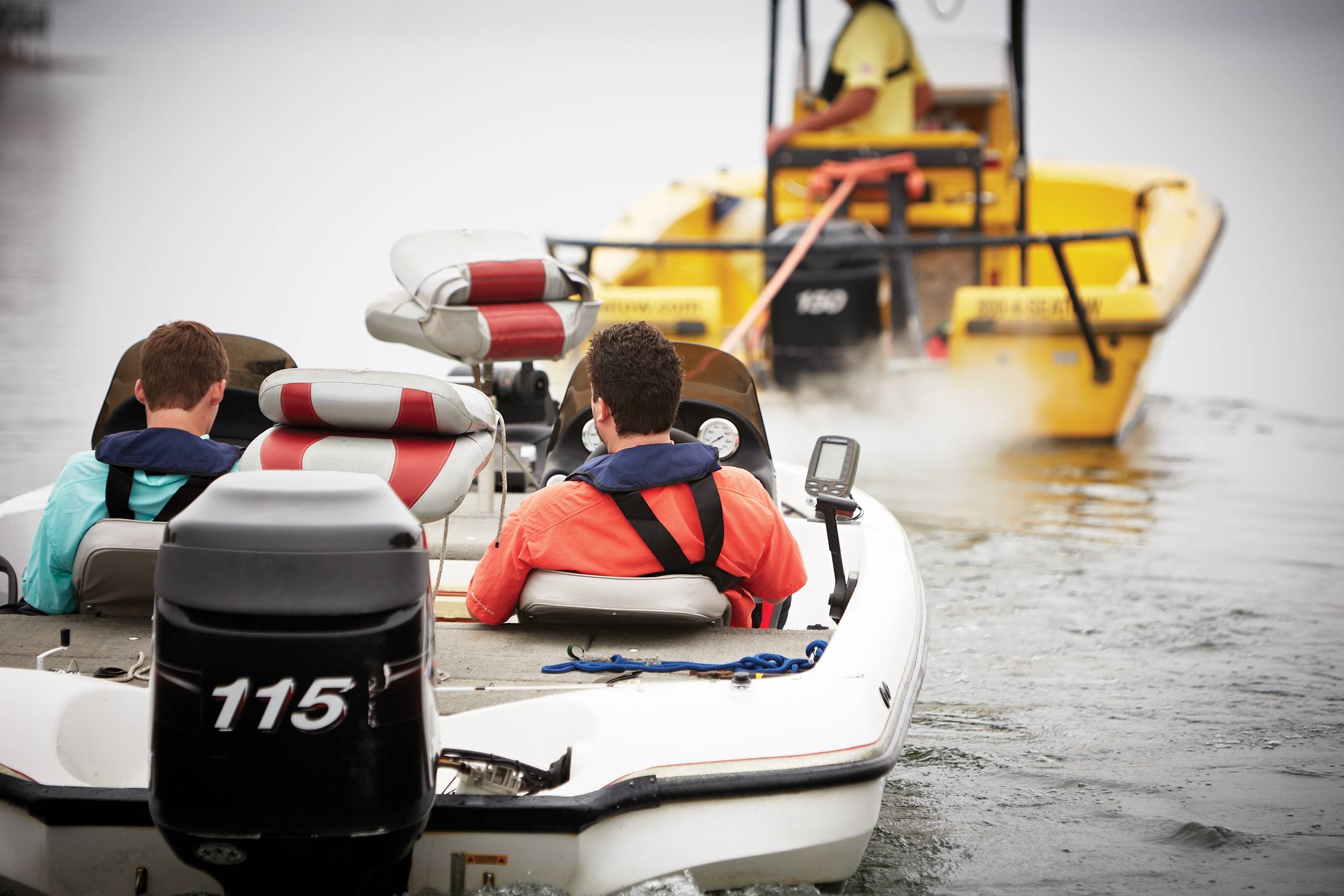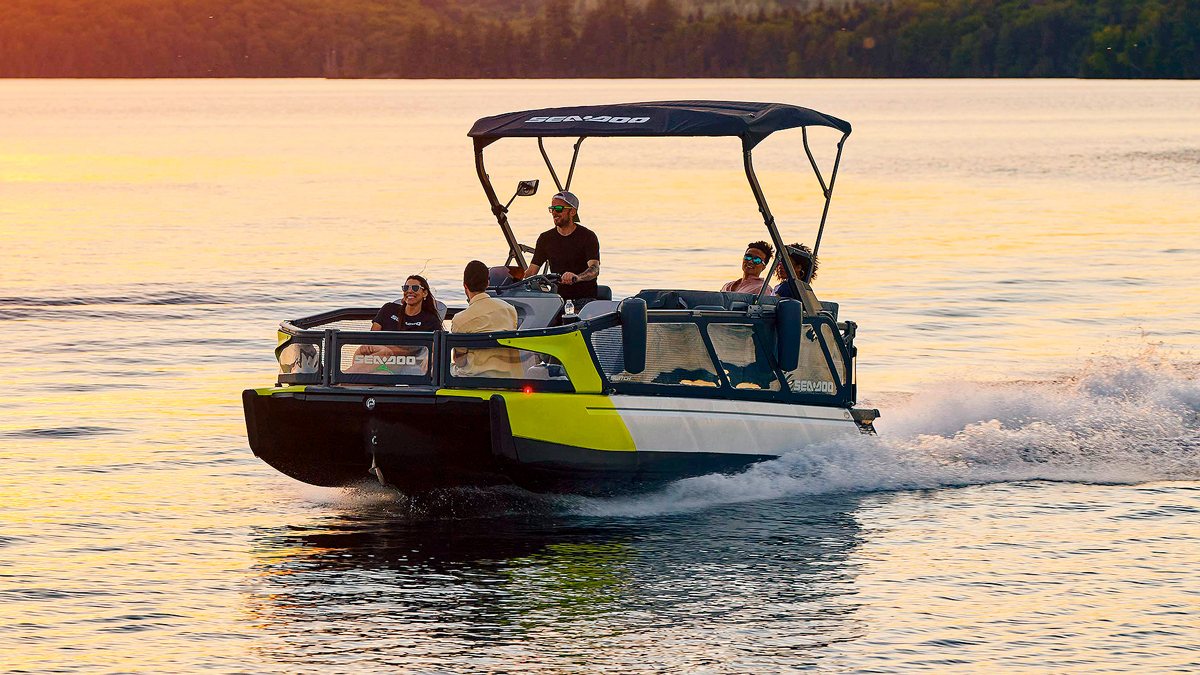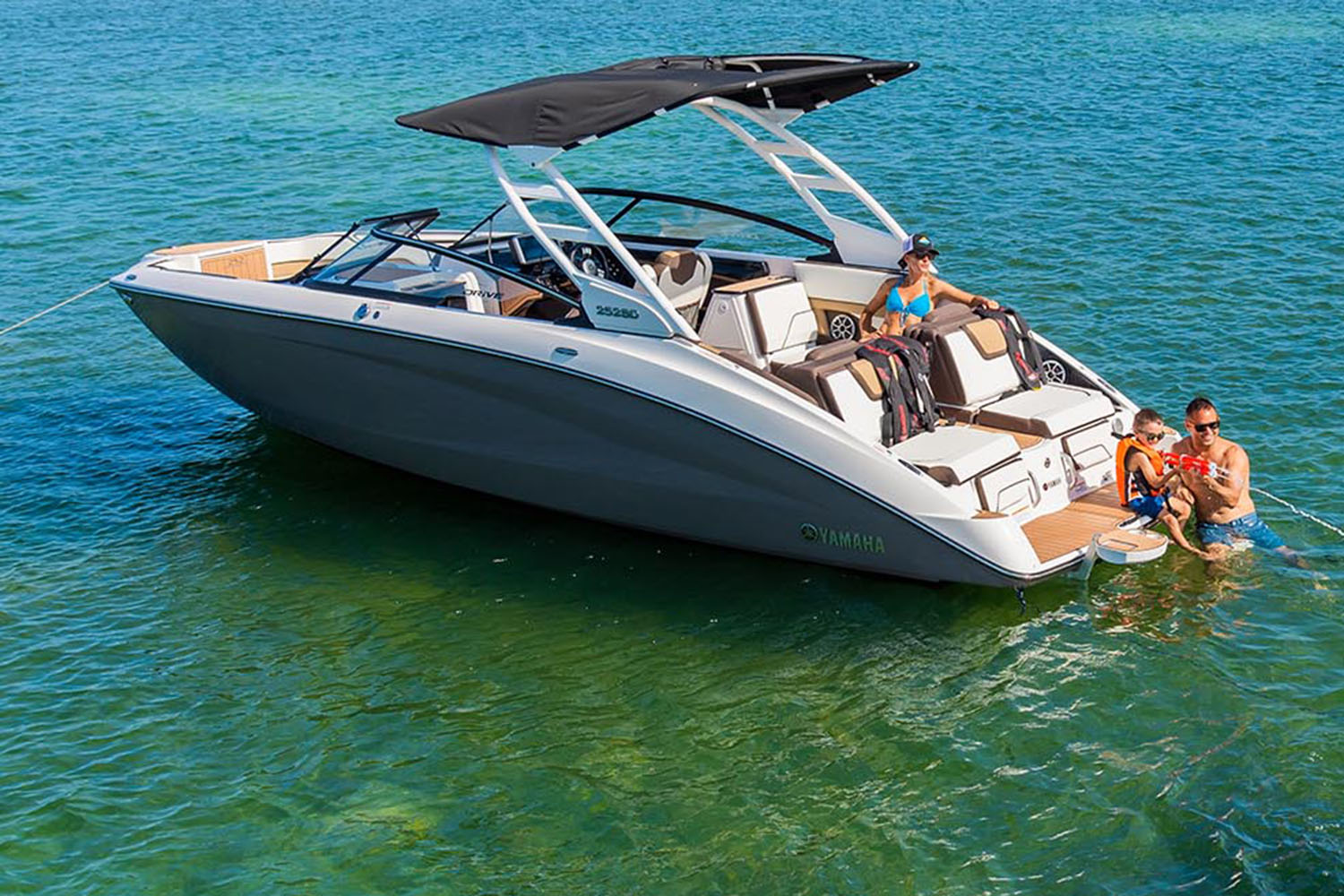Alabama Boating License: Essential Guide and Requirements
Alabama is a popular destination for boating enthusiasts, and obtaining a boating license in the state is an essential step for individuals looking to legally operate a motorized water vessel. The licensing process ensures that those operating boats are well-versed in boating safety practices and aware of local rules and regulations. Overall, the Alabama boating license serves to enhance the boating experience for everyone involved, ultimately promoting safety and fun on the state's waterways.

The Alabama Law Enforcement Agency (ALEA) oversees the statewide licensing of boat operators, which began in 1997 following the Boating Safety Reform Act. The requirements for obtaining a license include being at least 12 years of age, demonstrating knowledge of boating safety through a written examination, and adherence to local rules and regulations. Boater education courses, both online and in-person, can prepare applicants for the licensing process and ensure a positive experience on Alabama's waterways.
Key Takeaways
- Alabama requires boating licenses for motorized water vessel operators aged 12 and up
- ALEA oversees the licensing process, including administering boater education courses and exams
- Knowledge of local regulations and safety practices are essential for a fun and safe experience on Alabama's waterways.

Understanding Alabama Boating License
In Alabama, a boating license is required for individuals to operate a motorized vessel on the state's waterways. To be eligible for a vessel operator's license, a person must be at least 12 years old. However, operators aged 12 or 13 can only operate a vessel if accompanied by someone older.
Statewide licensing of boat operators began in all Alabama counties on July 17, 1997, under the Boating Safety Reform Act. The Alabama Law Enforcement Agency (ALEA) Marine Police Division oversees the licensing process and maintains boating rules and regulations.
Alabama residents can obtain their boater safety certification by providing valid proof of passing an approved boating safety course or by passing a certification exam given by the Alabama Department of Public Safety Driver's License Division. The Boat Alabama Certification Manual is the official handbook to familiarize applicants with Alabama's boating laws and safe vessel operation guidelines.
The rules and regulations prohibit operating a vessel or personal watercraft under the age of 12. To operate a vessel or personal watercraft alone, an individual must be at least 14 years old and possess a valid vessel license.
In summary, obtaining an Alabama boating license is essential for safely enjoying the state's waterways. Individuals must be at least 12 years old to be eligible and must pass either an approved boating safety course or a certification exam to receive their license. Complying with Alabama's boating rules and regulations ensures a responsible and enjoyable experience for all water enthusiasts.

Requirements for Obtaining a License
In Alabama, individuals are required to acquire a vessel operator's license to legally operate a motorized watercraft. To obtain this license, applicants must be at least 12 years old, and anyone under 12 years old is prohibited from independently operating any such watercraft 1. This license is also known as the "V" class license.
Residency plays a role in determining how to obtain a vessel operator's license. Alabama residents must first successfully complete a written examination administered by the Department of Public Safety to receive their operator certification. Meanwhile, non-residents who hold a valid operator certification or license from their home state can also operate watercraft in Alabama.
For boat operators aged 12 or 13, they must be under the supervision of a licensed boater who is 21 years old or older at all times while operating a water vessel. This requirement ensures the safety of young as well as inexperienced operators and other people using Alabama's waterways.
There is a $36.25 issuance fee for obtaining a vessel operator's license in Alabama. In case of loss or damage, a duplicate boat operator's certificate can be acquired for a cost of $5.00. To request a duplicate, applicants need to send a written request to the Alabama Marine Patrol at the following address:
Alabama Marine Patrol
P.O. Box 301451
Montgomery, AL 36130
(Attention: Education Section)
By knowing and complying with these requirements, boat operators in Alabama can ensure a safe and enjoyable experience on the state's waterways.

Online Procedure
Applying for an Alabama boating license can be conveniently done online through various platforms. The online courses are designed to be accessible and user-friendly, allowing applicants to complete the required training at their own pace.
The process of obtaining an Alabama boating license online typically involves four steps. First, applicants must pay a one-time fee of $34.95, which includes free unlimited retries of the final exam. After making the payment, they can access the Alabama Boaters Safety Course and study the course material. This course can be taken using a computer, tablet, or mobile device, providing flexibility for the applicants.
As they progress through the online course, applicants will learn about boating laws, regulations, and safety tips in Alabama. The course content is designed to be engaging and interactive, making it easier for students to understand and retain the information. Upon completion of the course, there will be an exam to test their knowledge of the material.
The online exam is required for applicants seeking a boating license, and it consists of multiple-choice questions based on the content covered in the course. After successfully passing the exam, applicants will receive a Certificate of Completion by mail within 1-2 weeks.
By following this online procedure, individuals can easily obtain an Alabama boating license in a convenient and efficient manner. This method helps ensure boating safety on Alabama's waterways, as well as compliance with state requirements for boat operators.

Alabama's Licensing Authorities
The Alabama Law Enforcement Agency (ALEA) takes the responsibility for managing boat and vessel licenses in the state. This agency works closely with the Department of Public Safety and the Marine Patrol Division to ensure that boating operations follow the rules and regulations set out by the state. Alabama boating licenses are necessary for all individuals who wish to operate motorized vessels on the state's waterways.
The Department of Public Safety is responsible for overseeing the implementation of the Boating Safety Reform Act. Under this Act, statewide licensing of boat operators began in all Alabama counties on July 17, 1997. It is required that operators must be at least 12 years of age before operating a motorized vessel in Alabama.
The Marine Patrol Division is another essential entity that works in conjunction with the Alabama Law Enforcement Agency. This division focuses on ensuring the safe navigation of Alabama's waterways by providing education, enforcing boating laws, and assisting with search and rescue missions when needed. The Marine Patrol Division also plays a critical role in promoting safe boating practices through education and operator certification.
The Alabama Marine Patrol Division works alongside the Alabama Law Enforcement Agency to manage boat and vessel registration, which is crucial for maintaining accurate information on all boats operating within the state. By keeping a record of registration, the agencies can ensure that boat operators are both licensed and knowledgeable about safe boating practices.
Lastly, the Marine Patrol Office is a part of the Alabama Law Enforcement Agency responsible for providing support to the Marine Patrol Division. This office is responsible for handling inquiries and the administration of licensing and boat registration processes.
In summary, Alabama's boat licensing authorities, including the Department of Public Safety, the Marine Patrol Division, and the Marine Patrol Office, work together with the Alabama Law Enforcement Agency to create a safe and enjoyable boating experience for all residents and visitors.

Boater Education and Safety
In Alabama, boating education is vital for ensuring the safety of operators, passengers, and others on the water. The state offers a boater safety course that covers essential information such as laws, navigation rules, and emergency procedures. This course helps boaters stay safe and abide by the rules while operating their vessels.
One essential aspect of boater safety is the proper use of life jackets or personal flotation devices (PFDs). Alabama requires all boat operators and passengers to have a US Coast Guard-approved life jacket on board. The life jacket must be appropriate for the person's size and weight. Wearing a life jacket significantly reduces drowning risks and has become an integral part of boating safety reform acts.
Legislation, such as the Boating Safety Reform Act and the Boating Safety Enhancement Act, aim to improve safety standards and reduce the number of accidents on Alabama waterways. These acts focus on measures like mandatory boater education and increased penalties for violations.
Organizations like the U.S. Coast Guard Auxiliary and the U.S. Power Squadron also play a vital role in promoting boater safety by offering courses and hands-on training for boaters. In Alabama, completing a course from the U.S. Coast Guard Auxiliary, the U.S. Power Squadron, or the Alabama Marine Police "Boating Basics" course exempts applicants from written examinations when obtaining their boating certification or license.
Upon successfully completing the boater safety course, the applicants will receive a boater education card. The Alabama Boating Course Certificate of Completion serves as proof that the individual has completed an approved boater safety course. This card is mandatory for young and new boaters to operate a motorized vessel on Alabama waterways.
In conclusion, boater education and safety are vital components to enjoying recreational activities on Alabama waterways responsibly. By completing boater safety courses, wearing life jackets, and adhering to safety regulations, boaters can ensure a safe and enjoyable experience for everyone involved.

Registration and Renewal
In Alabama, registering and renewing a boating license is an essential requirement for operating motorized vessels. The registration process ensures that all boats and their owners comply with state regulations and laws, while renewal helps update the information on file.
To register a new motorized vessel, boat owners should visit their local licensing office or online application platform. They need to provide information like the boat's make, model, and hull identification number (HIN), as well as personal details such as their driver's license number and contact information. Depending on the size and type of the boat, registration fees may vary.
Once the boat registration is complete, owners will receive registration decals that must be displayed on the vessel according to state regulations. Typically, these decals are valid for one to three years and must be renewed before expiry.
When it's time for renewal, boat owners should follow similar steps as the initial registration. Updating any changes to personal information, such as address or contact details, is important to ensure accurate records. Additionally, boat owners should be prepared to provide their current boat registration number or driver's license number for verification purposes.
In some instances, boat owners might also need to provide proof of ownership if the boat's details have changed, such as after a sale or transfer. It's important to note that renewing a boat registration in Alabama is separate from renewing one's driver's license, and the processes should not be conflated.
In conclusion, registering and renewing a boat registration in Alabama is a vital step for owners of motorized vessels to stay in compliance with state laws. By maintaining updated records, boat owners contribute to a safe and regulated boating environment for all who enjoy Alabama's waterways.

Fees and Insurance
Obtaining an Alabama boating license requires paying certain fees and, in some cases, getting boat insurance. The Alabama Law Enforcement Agency charges a $36.25 issuance fee for the boat operator's license. In case of needing a duplicate boat operator's certificate, the cost is $5, payable by certified check or money order.
Boat insurance is not mandatory for all boaters in Alabama. However, it is essential to consider getting boat insurance due to the risks involved with operating a vessel. Accidents, theft, or damage can occur on the water, and having boat insurance can help mitigate financial losses in such events.
When it comes to the Alabama vessel license, the regulations are overseen by the Alabama Law Enforcement Agency. Before receiving your license, you must pass a test administered by a licensed examiner. The license examiner ensures that all applicants have the necessary knowledge and understanding of the state's boating laws and safety guidelines before obtaining a license.
For boat owners and operators, it is crucial to be aware of the costs associated with obtaining and maintaining their Alabama boating license, vessel registration, and insurance coverage to ensure compliance with state regulations and the safety of all passengers on board.

Alabama’s Waterways and Weather
Alabama boasts a diverse array of waterways, making it an ideal destination for boating enthusiasts. From the extensive coastline along the Gulf of Mexico to the numerous lakes, rivers, and reservoirs scattered throughout the state, there are plenty of opportunities for boating adventures.
The state's climate also plays a significant role in making boating a popular activity. Alabama experiences a humid subtropical climate with relatively mild winters and long, warm summers. These favorable weather conditions provide ample opportunities for boaters to enjoy the water throughout the year.
In the southern region of Alabama, the coastline along the Gulf of Mexico offers beautiful sandy beaches, warm waters and abundant marine life. The Intracoastal Waterway, which runs parallel to the coast, provides a calm sheltered channel for boaters to navigate easily. Some popular boating destinations in this area include Orange Beach, Gulf Shores, and Dauphin Island.
Further inland, Alabama is home to numerous lakes, rivers, and reservoirs, including the Tennessee River, Alabama River, and the Coosa River. These expansive bodies of water offer various recreational activities such as fishing, water skiing, and camping.
One noteworthy lake is Lake Guntersville, situated on the banks of the Tennessee River. This lake is the largest in Alabama, covering an area of 69,000 acres, and is renowned for its excellent bass fishing opportunities.
Another significant inland body of water is the expansive Lake Eufaula, also known as the "Bass Fishing Capital of the World." This 45,000-acre reservoir, shared by Alabama and Georgia, is popular among anglers and recreational boaters alike.
While Alabama's waterways and weather make it an ideal location for boating activities, it is essential to abide by the boating rules and regulations and obtain the appropriate boating licenses to ensure safety and compliance with the law.

Alabama Boating Rules and Regulations
Alabama has specific boating rules and regulations in place to ensure the safety and enjoyment of everyone on the water. One of the primary requirements is obtaining a valid boat or vessel license, which is regulated by the Alabama Law Enforcement Agency's Marine Patrol Division.
Boat and vessel operators must be at least 12 years of age to operate a motorized vessel on Alabama's waterways. Moreover, those who are 14 years old and above need a vessel license to operate a boat or personal watercraft without supervision. To obtain a license, individuals need to either hold a valid United States Coast Guard Motorboat Operator's License or successfully complete a recognized boating course, such as one provided by the United States Power Squadron.
It is essential to be aware of the mandatory equipment and safety regulations for boating in Alabama. The U.S. Coast Guard Auxiliary provides a Boat Equipment Checklist For Alabama, which covers both federal and state requirements. If a boat meets all these requirements, it will receive a Courtesy Marine Examination (CME) decal.
In addition to licensing and equipment requirements, Alabama boating rules encompass a variety of other guidelines related to speed limits, navigation, and proper conduct on the water. These rules are in place to promote safety, prevent accidents, and protect the natural environment.
Due to the ongoing pandemic, certain driver license offices may be closed or have limited operations, which could affect the process of obtaining a boat or vessel license. To stay informed about the latest updates, it is recommended to periodically visit the Alabama Law Enforcement Agency website regarding driver license division office closures.
In conclusion, being familiar with Alabama boating rules and regulations is crucial for not only following the law but also ensuring a safe and pleasant experience for all who participate in boating activities in the state.

Frequently Asked Questions
How can I replace my lost Alabama boating license certificate?
If you lose your Alabama boating license certificate, you can request a duplicate by sending a written request along with a $5.00 fee, payable by certified check or money order, to the Alabama Marine Patrol: P.O. Box 301451, Montgomery, Al 36130 (Attention: Education Section) source.
What are the exemptions from obtaining an Alabama boaters license?
You are exempt from obtaining an Alabama boaters license if you were 40 years old or older as of April 28, 1994 source.
What is the minimum age to get an Alabama boating license?
The minimum age to obtain a boating license in Alabama is 12 years old. Anyone younger than 12 years old is not allowed to operate a motorized vessel on Alabama's waterways source.
How much does it cost to obtain a boating license in Alabama?
It costs $36.25 to obtain a boating license in Alabama, paid as an issuance fee source.
Are there online options to take the Alabama boating license test?
Yes. There are online options available to take the Alabama boating license test, such as the Boater Exam Online Testing provided by the Alabama Law Enforcement Agency.
What is the total number of questions on the Alabama boating test?
Although the exact number of questions on the Alabama boating test isn't mentioned, it is a written examination that all applicants must pass to obtain their boating license unless they meet the age exemption criteria source.
Footnotes
Charlie is Editor-in-Chief of Sea Magazine